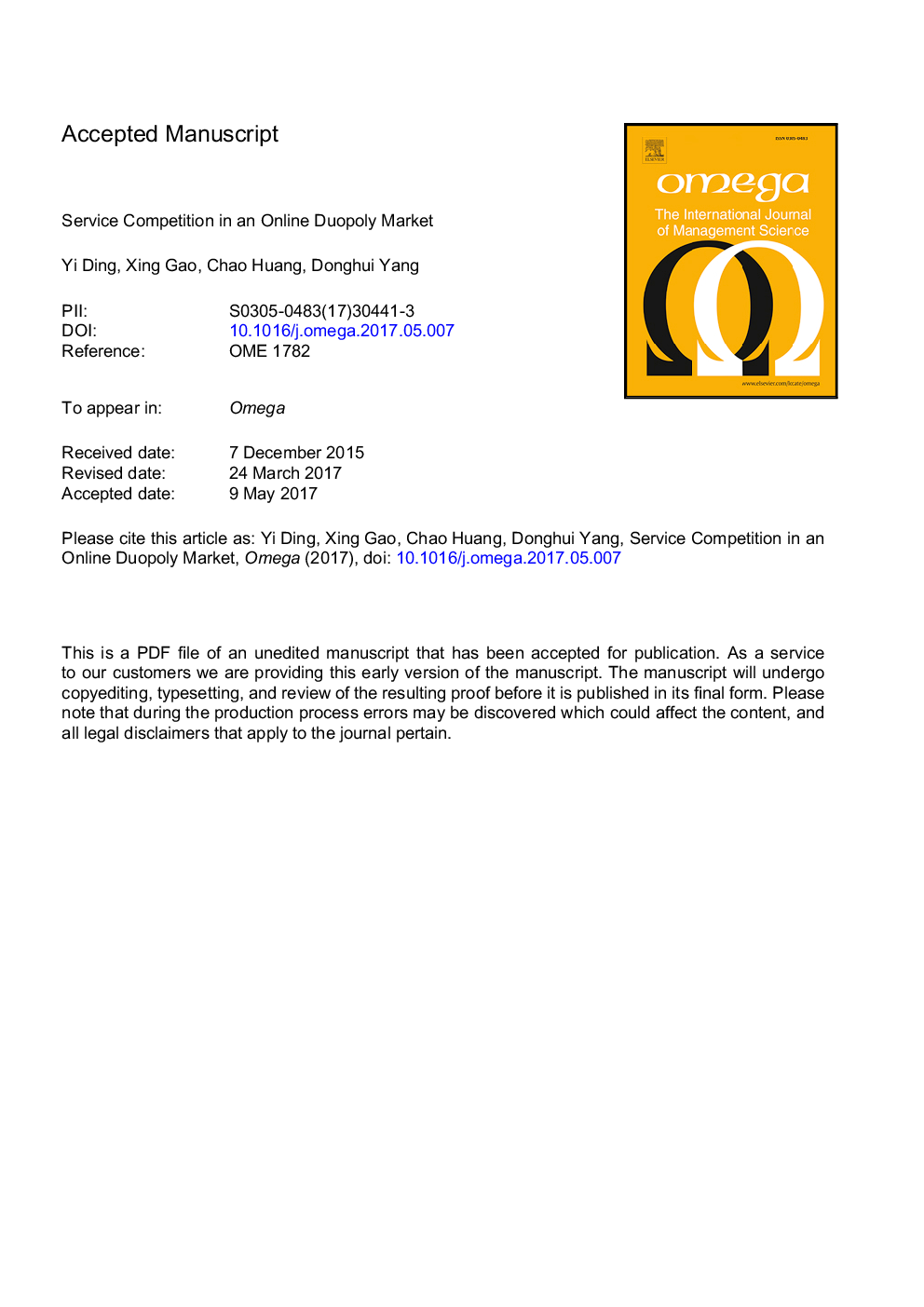| Article ID | Journal | Published Year | Pages | File Type |
|---|---|---|---|---|
| 7436639 | Omega | 2018 | 37 Pages |
Abstract
Motivated by a recent survey suggesting fast delivery among the most desired features that drive people to shop online, this study aims to investigate service competition in the context of inventory and environmental constraints. We consider a price and service time sensitive market in which two retailers sell substitutable types of products. They compete horizontally for the same group of customers, and they decide independently the service time guaranteed to the consumers. Both retailers adopt stationary base-stock policy. We find that when carbon emissions are not regulated, the choice of service time is closely related to the focus of competition. When price competition intensifies, service competition is de-prioritized, and longer service time is used. When service competition is fierce, service time is reduced for greater market share. However, when carbon emissions are regulated by carbon tax, greater level of price competition leads to shorter service time while higher level of service competition results in longer service time, which is opposite to the unregulated situation. Furthermore, we conclude that simply imposing carbon tax may not bring the expected reduction in carbon emissions if consumers are insensitive to their carbon footprints and willing to absorb the carbon cost for speedy service.
Related Topics
Social Sciences and Humanities
Business, Management and Accounting
Strategy and Management
Authors
Yi Ding, Xing Gao, Chao Huang, Jia Shu, Donghui Yang,
